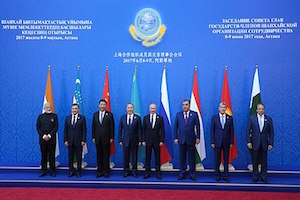Uzbekistan-Tajikistan Relations: The Long Way to Strategic Partnership
By Farkhod Tolipov
September 18, 2018, the CACI Analyst
Uzbekistan’s President Shavkat Mirziyoev’s state visit to Tajikistan on March 9-10, 2018, represented a
“closure of the circle” in a series of trips since Mirziyoev was elected and proclaimed Central Asia as the new
foreign policy priority for Uzbekistan. The visit marked the start of a thaw between these states. On August
17-18, Tajikistan’s President Emomali Rakhmon made the first Tajik state visit to Uzbekistan in the entire
period since independence. The two Presidents signed a long-awaited Treaty on Strategic Partnership,
implying that Uzbekistan is now completely surrounded by strategic partners in Central Asia.
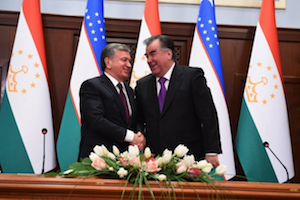
UNGA Adopts Resolution on Strengthening Cooperation in Central Asia
By Batir Tursunov
September 5, 2018, the CACI Analyst
At its June 22, 2018, plenary session, the UN General Assembly adopted a resolution on “Strengthening regional and international cooperation to ensure peace, stability and sustainable development in the Central Asian Region.” According to Uzbekistan’s Foreign Ministry, all UN members unanimously supported the draft document, developed by Uzbekistan along with other Central Asian states.
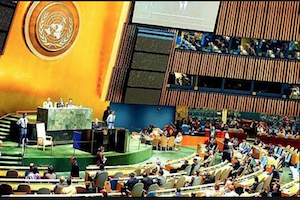
New Central Asia But Old Great Game? Ramifications of the Consultative Meeting in Astana
By Farkhod Tolipov
April 10, 2018, the CACI Analyst
On March 15, 2018, the presidents of Kazakhstan, Kyrgyzstan, Tajikistan and Uzbekistan and the speaker of Turkmenistan’s parliament gathered in Kazakhstan’s capital Astana for a long-awaited meeting. Notably, the meeting was five-lateral, not four-lateral like previous meetings, and was consultative. Over 10 years have passed since the latest regional meeting of the Central Asian leaders. Not least for geopolitical reasons, the regional integration process that started in 1991 has since declined. This consultative meeting signaled a possible revitalization of regional cooperation, while the region remains in the shadow of great power politics.
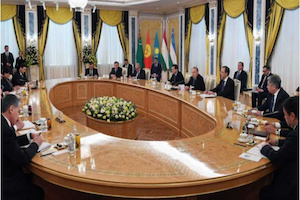
The Reemerging Self-Confidence of Central Asia
By Johan Engvall
March 22, 2018, the CACI Analyst
Something is stirring in Central Asia. The past two weeks have seen a flurry of bilateral and multilateral get-togethers, starting on March 9, when Uzbekistan’s President Shavkat Mirziyoyev arrived with great fanfare in Dushanbe for the first state visit of a president of Uzbekistan to Tajikistan since 2000. Less than a week later, on March 15, the presidents of Kazakhstan, Kyrgyzstan, Tajikistan and Uzbekistan as well as the speaker of Turkmenistan’s parliament gathered in Astana for the first exclusively regional “summit” in almost a decade. What do these meetings, each producing several intriguing bilateral and multilateral agreements and statements, mean for the prospects of Central Asian countries finally embarking upon a path of development through cooperation?
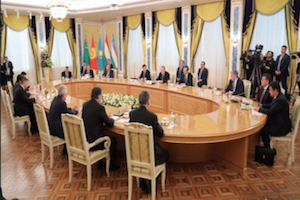
Has the SCO Solved its Expansion Dilemmas?
By Richard Weitz
August 3, 2017, the CACI Analyst
The June Shanghai Cooperation Organization (SCO) summit in Astana marked the SCO’s first membership expansion since its creation in 2001. By finally ending this logjam, the SCO has raised expectations of continued enlargement and increased geopolitical weight. However, major obstacles to further growth persist; meanwhile, more members deepen the mutual tensions and rivalries within the institution.
